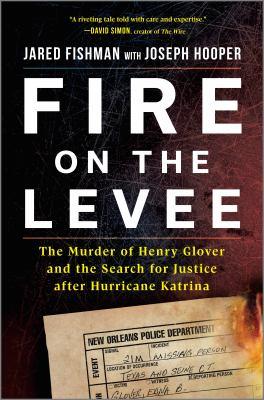
Fire on the levee : the murder of Henry Glover and the search for justice after Hurricane Katrina
The former federal prosecutor and founder of the Justice Innovation Lab tells the story of his battle to crack open a police shooting and cover-up in Hurricane Katrina-era New Orleans. In 2009, Jared Fishman was a young prosecutor working on low-level civil rights cases in the Justice Department when a file landed on his desk. That folder contained two items: a story from The Nation magazine looking into mysterious deaths in New Orleans following Hurricane Katrina, and an autopsy report for a man named Henry Glover, whose charred remains were found in a burned-out car two weeks after the storm. The autopsy report, bafflingly, listed no cause of death. But according to the Nation story, a seriously wounded Glover had last been seen in a car that had been driven away by New Orleans police officers.
Available Copies by Location
| Location | |
|---|---|
| Victoria | Available |
Browse Related Items
| Genre |
| True crime stories. |
- ISBN: 9781335429261 (hardcover)
-
Physical Description
print
473 pages : illustration ; 24 cm - Publisher 2023
Content descriptions
| Bibliography, etc. Note: | Includes bibliographical references. |
Additional Information

Publishers Weekly Review
Fire on the Levee : The Killing of Henry Glover and the Quest for Justice after Hurricane Katrina
Publishers Weekly
(c) Copyright PWxyz, LLC. All rights reserved
This riveting true crime saga from former federal prosecutor Fishman and Men's Journal contributing editor Hooper (Muscle Medicine) begins in 2009 when Fishman, then working in the Department of Justice's Civil Rights Division, came across a file on Henry Glover, a Black man whose body was found in a burned-out car atop a breached New Orleans levee after Hurricane Katrina. This launched a yearlong FBI investigation that culminated in the conclusion that Glover was killed by a white police officer and it was covered up by the New Orleans Police Department. Two officers ended up facing charges, one for federal civil rights violations involved in Glover's death and another for obstruction of justice. Fishman and Hooper meticulously detail the investigation, anonymous threats against the investigators, and the racism suffusing the case, generating real outrage when the verdict against Glover's killer is overturned on appeal. Coming 17 years after Glover's death and 10 years after the officer who killed him walked free, this is a scathing and timely look at police brutality in America. Readers will be gripped. Agent: Sam Stoloff, Frances Goldin Literary Agency. (Apr.)

Kirkus Review
Fire on the Levee : The Killing of Henry Glover and the Quest for Justice after Hurricane Katrina
Kirkus Reviews
Copyright (c) Kirkus Reviews, used with permission.
A winding account of a notorious murder in the wake of Hurricane Katrina. In 2005, the mega-storm famously destroyed low-lying Black sections of New Orleans, mostly due to failed infrastructure. Across the Mississippi River, the "often-overlooked" Algiers community was on comparatively high ground and isolated by floodwaters. When looting broke out, the police responded with violence, writes Fishman, a former federal prosecutor and founder of Justice Innovation Lab. In one instance, an officer shot a 31-year-old Black man named Henry Glover as he approached a store. Glover's body, in the absence of mortuary services, was put in an abandoned car that was torched alongside the river: "All that remained was a skull, some ribs, and a leg bone." The police closed ranks to cover up involvement, and a long series of hearings and trials, which Fishman recounts with too much detail, did not deliver the desired outcome for all involved: Some officers went to jail, but some walked. Going on the ground to interview witnesses, the victim's family, some perpetrators, and the poor fellow who had to keep making payments on the burned car, Fishman constructs a careful case of his own. In the end, he warns, the Glover case shows "what can happen when our institutional systems fail, and the worst impulses of humanity spin out of control." In closing, the author notes that New Orleans has since reformed some of its police procedures to the point that it is now proselytizing for more humane, less violent encounters and more community policing. Ironically, however, this reform affects a city that is substantially less Black than before Katrina, and there remains plenty of police resistance to the mandated constraints. Retired officers, notes the author, often complain that "if we want to stop crimeâ¦unshackle the police and let them police the way they want to." A cautionary tale of unchecked police power and failed justice. Copyright (c) Kirkus Reviews, used with permission.


